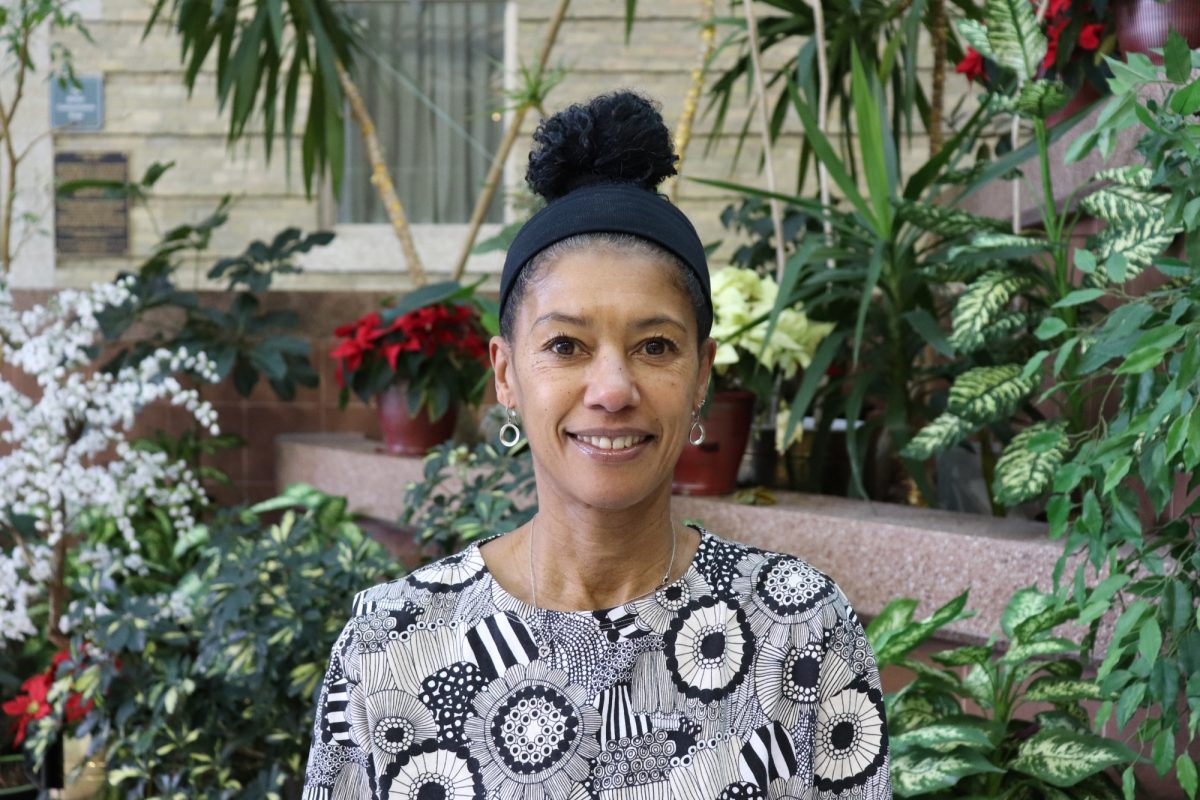
Delia Douglas
Stand up, show up, listen up
Delia Douglas is the the anti-racism practice lead in the Office of Equity, Diversity and Inclusion in the Rady Faculty of Health Sciences. She shares her disturbing personal experience with racism in this opinion piece for the Winnipeg Free Press.
Every member of my family has been stopped by the police, whether in Vancouver, Winnipeg, and Montreal. I have also “resembled a suspect” and been questioned by officers in Canada, the United States, and Cuba.
Anti-blackness is linked to the creation of Canada.
The history of a black presence here, of course, is diverse and complex, extending coast to coast, dating to the 1600s.
It doesn’t just begin with the oft-celebrated story “the north” was the final destination of the Underground Railroad and the place where the enslaved escaped to “freedom.”
Enslavement built economies in New France and British North America for centuries.
Money from slavery was used to construct the Hudson Bay Company and the expansion of the fur trade in Manitoba.
There are desecrated and disrespected slave cemeteries in Ontario and Quebec. There is a long history of segregation and racism in Canada’s history with the 1960s destruction of Africville in Halifax, Canada’s oldest black settlement.
Today, workplace discrimination, race-based killings, cross burnings, and fire bombings happen throughout Canada. Black youth are overrepresented in the child-welfare system, and black people are overrepresented in Canadian prisons.
Black status and identity in Canada have been — and is — connected to the authorization and use of anti-black racial violence.
I grew up in Winnipeg, leaving after high school, only to return recently following the death of my father. In my travels, I’ve seen how dispossession, genocide, enslavement, and ongoing settler colonialism define all of our lives.
I’ve also seen how mistreatment of black and Indigenous communities intersect. Hogan’s Alley is located on the unceded traditional territories of the Tsleil-Waututh and Squamish Coast Salish peoples, while Africville is located on unceded Mi’kmaq territory.
I write these words from Treaty 1 territory and the homeland of the Métis Nation.
We all inherit the legacies of violence, but for black folk, our sense of belonging remains a contested and ongoing site of struggle, as does recognition of our humanness.
What are often called black “rage,” “rebellion,” and “resistance” are our responses to anti-black racism.
This is the reality of being black in Canada today.
While Indigenous and black encounters with one another and the Canadian state reside in difficult and incomplete conversations, our communities are connected through enslavement, colonialism, white supremacy, oppression, and genocide. The one truth we do share is we have been, and continue to be, systematically targeted for death.
Our communities are under-serviced, under-protected and over-policed. Systemic racism renders us disposable.
The deaths of George Floyd (an ex-Minneapolis police officer faces a second-degree murder charge, three others are charged with aiding and abetting murder) and Regis Korchinski-Paquet in Toronto — and, recently in Winnipeg, the police-shooting deaths of Machuar Madut, Eishia Hudson, Stewart Kevin Andrews, and Jason Collins — are all moments of possibility and opportunities to enact change.
This comes in naming silence as violence — as complicity. Naming governments and institutions as perpetrators of genocide. And, perhaps most of all, calling everyone out as part of the solution.
Can I get a witness?
We live together. We must stand up together.
Our actions now, here, will signal our presence, our values, and our humanness.
White supremacy, heteropatriarchy settler colonialism, and anti-blackness are not American problems. These aren’t Canadian problems either.
These are global problems.
Our futures, our struggles, and our liberation are linked; we are stronger together than apart.
Life and death are at stake. The time is now to hear us, see us, and walk together. There is no place to stand outside of racism.
Stand up. Show up. Listen up.
Beyond Friday’s gathering in Winnipeg, entitled “Justice 4 Black Lives,” we have an opportunity to make connections across our differences and bridge our struggles for freedom across race, gender, class, disability, sexuality, and nationality.
As Archbishop Desmond Tutu stated: “If you are neutral in situations of injustice, you have chosen the side of the oppressor.”
Whose side are you on?







Excellent. Also loving that BLM is not indicated as a fitting representative of the type of action required for solving. Time, love, and tenderness. I say this as a descendant of Africville. Thank you.
Delia, thanks for sharing this insightful article, it does let me understand a little more how I am part of the problem even though in the past I didn’t think I was. Also how I can participate in being part of the solution.
Best regards
Larry Wood
Thank you for sharing the Truth Delia. I am a proud Métis woman who is grateful to walk with you and stand up against the racist systems that continue to oppress and silence BIPOC folks. Marsi, Miigwetch, Thank You!